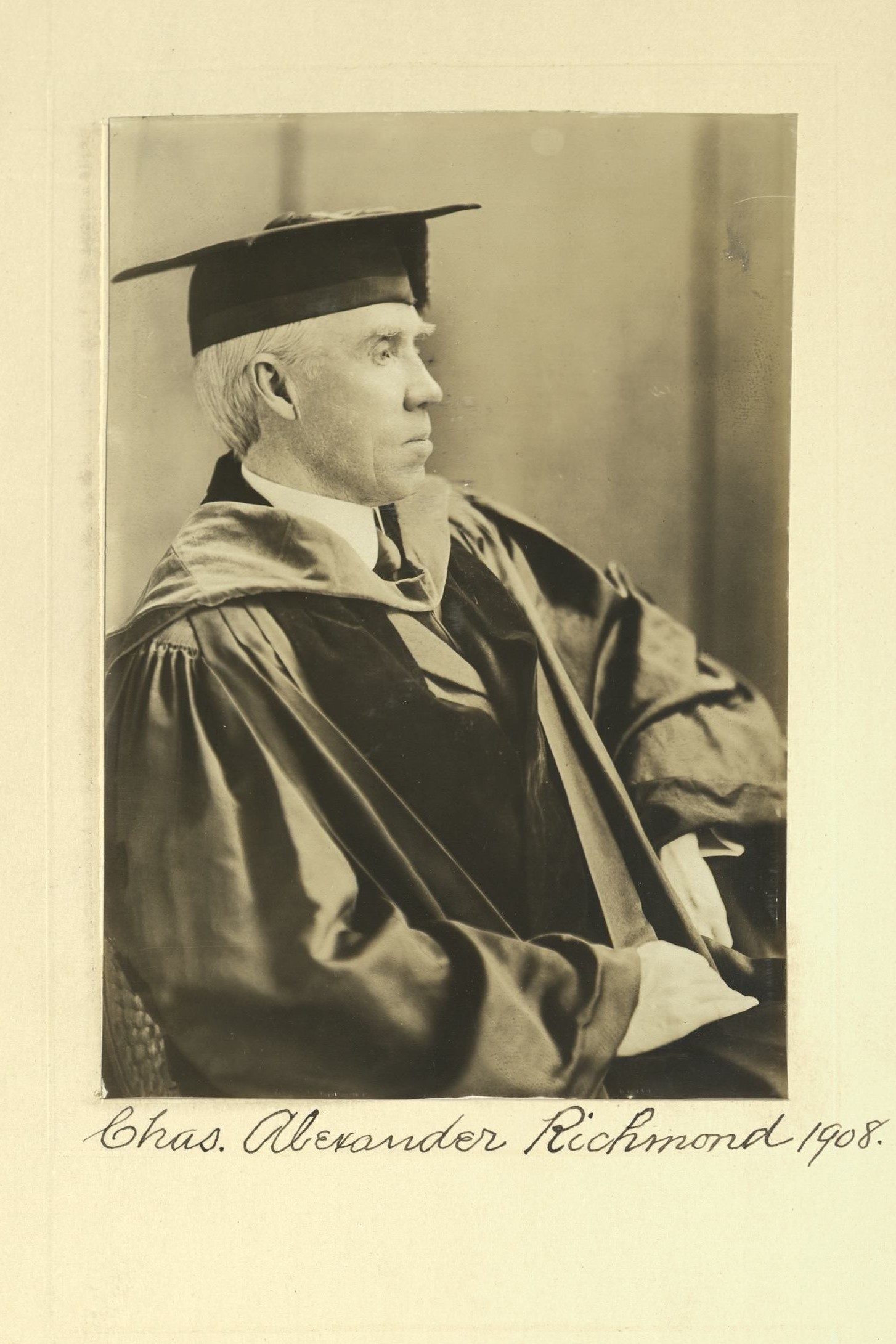Clergyman
Centurion, 1908–1940
Born 7 January 1862 in New York (Manhattan), New York
Died 12 July 1940 in Washington, District of Columbia
Buried Schenectady Memorial Park , Schenectady, New York
, Schenectady, New York
Proposed by Henry Evertson Cobb and John Clinton Gray
Elected 5 December 1908 at age forty-six
Proposer of:
Seconder of:
Century Memorial
It was the great good fortune of Union College that the many talents, the quick mind and the tireless energy of Charles Alexander Richmond were devoted to the up-building of this ancient institution for a full twenty years. From 1909 to 1929 he built, reorganized, strengthened faculties and labored mightily to return college football to the status of a sport. He was an ardent sportsman himself—a fisherman and a hole-in-one golfer. In opposing the commercialization of football he urged strongly all the athletics that a curriculum would permit. The younger generation was under heavy fire during much of his regime and he made himself one of its most valiant defenders. “I’m inclined to think there was just as much license in the days when I was young,” he said. “But then they kept it more under cover.” He found Union a sleepy old college. He left it a vigorous and significant institution.
Richmond was a native of New York City and a clergyman by profession. His longest charge was the Madison Avenue Church at Albany. He was a builder always. In his first charge, at East Aurora, he organized the building of a beautiful church; at Albany he built another. It is not too much to say that he transformed the campus of Union with a wealth of new beauty.
His friends in the Century, some of whom remember him from the days in the Princeton Seminary, remember first of all his good nature and boyishness. After that it was music that enthralled him, especially the singing of Negro spirituals and Scotch ballads to the accompaniment of his own guitar. Later he composed and published a number of songs for children. For a final picture of him, this recollection of a Centurion deserves recording: “No one can forget a Twelfth Night at the Century when, arrayed as a monk, he sang his compositions to his own accompaniment on the harp. That homely, rugged face, with bushy red eyebrows, irradiated beauty and became ‘as the face of an angel’ as he played and sang.”
Geoffrey Parsons
1940 Century Memorials

